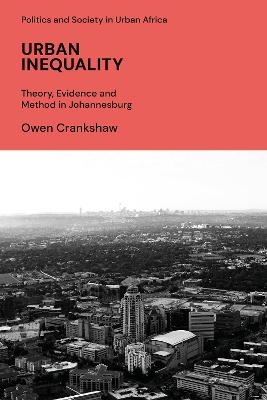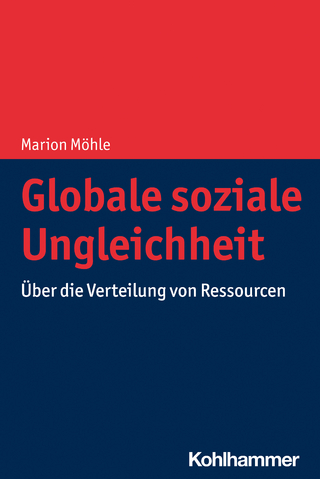
Urban Inequality
Zed Books Ltd (Verlag)
978-1-78699-894-1 (ISBN)
patterns of income, class and racial inequality in Johannesburg highlight how
and why earnings and spatial inequality in cities are changing in differing
ways to the, commonly-accepted, social polarisation hypothesis.
Based on new evidence that challenges existing theories of urban inequality, Crankshaw argues that the changing pattern of earnings and occupational inequality in Johannesburg is better described by the professionalism of employment alongside high-levels of chronic unemployment.
Central to this examination is that the social polarisation hypothesis, which is accepted by many, is simply wrong in the case of Johannesburg. Ultimately, Crankshaw posits that the post-Fordist, post-apartheid period is characterised by a completely new division of labour that has caused new forms of racial inequality. That racial inequality in the post-apartheid period is not the result of the persistence of apartheid-era causes, but is the result of new causes that have interacted with the historical effects of apartheid to produce new patterns of racial inequality.
Owen Crankshaw is Full Professor of Sociology at the University of Cape Town, where he is an expert in the design and statistical analysis of surveys and population censuses. He is the author of Race, Class and the Changing Division of Labour Under Apartheid (1997) and co-author of Uniting a Divided City: Governance and social exclusion in Johannesburg (2002). He has contributed to many other books and scholarly journals in the field of Urban and African Studies.
Acknowledgements
List of Figures
List of Tables
Introduction:
1.Theories of Urban Inequality
Part One: De-Industrialisation and the Labour Market
2.The Changing Occupational Structure: Social Polarisation or Professionalisation?
3.Professionalisation, Unemployment and Racial Inequality
Part Two: From a Fordist to a Post-Fordist Spatial Order
4.Johannesburg’s Fordist Spatial Order
5.The Edge City of Sandton
6.From Racial Ghetto to Excluded Ghetto: Soweto, Eldorado Park and Lenasia
7.Racial Residential Desegregation in White Neighbourhoods
Conclusion
8.Urban Inequality
References
| Erscheinungsdatum | 05.03.2022 |
|---|---|
| Reihe/Serie | Politics and Society in Urban Africa |
| Sprache | englisch |
| Maße | 156 x 234 mm |
| Themenwelt | Sozialwissenschaften ► Politik / Verwaltung |
| Sozialwissenschaften ► Soziologie ► Spezielle Soziologien | |
| ISBN-10 | 1-78699-894-7 / 1786998947 |
| ISBN-13 | 978-1-78699-894-1 / 9781786998941 |
| Zustand | Neuware |
| Haben Sie eine Frage zum Produkt? |
aus dem Bereich


